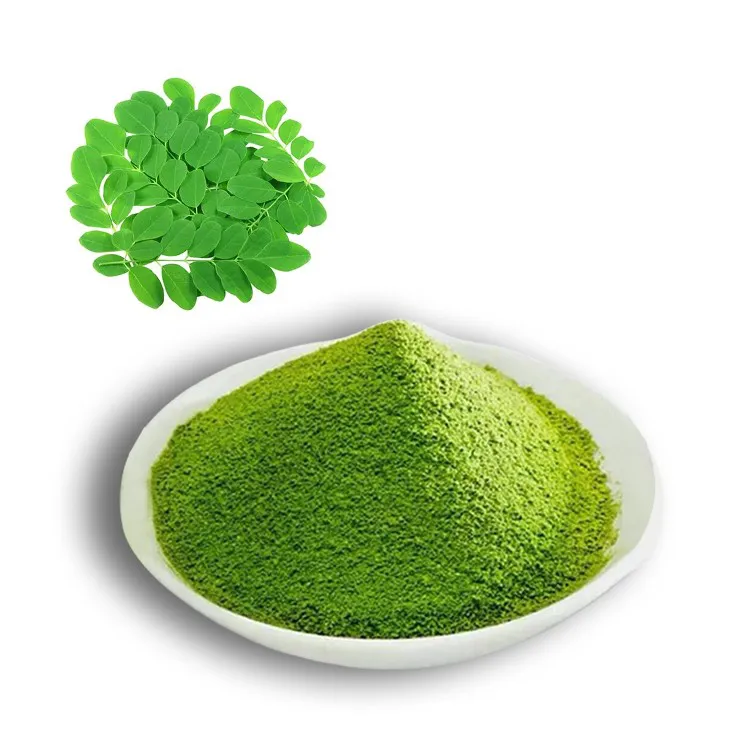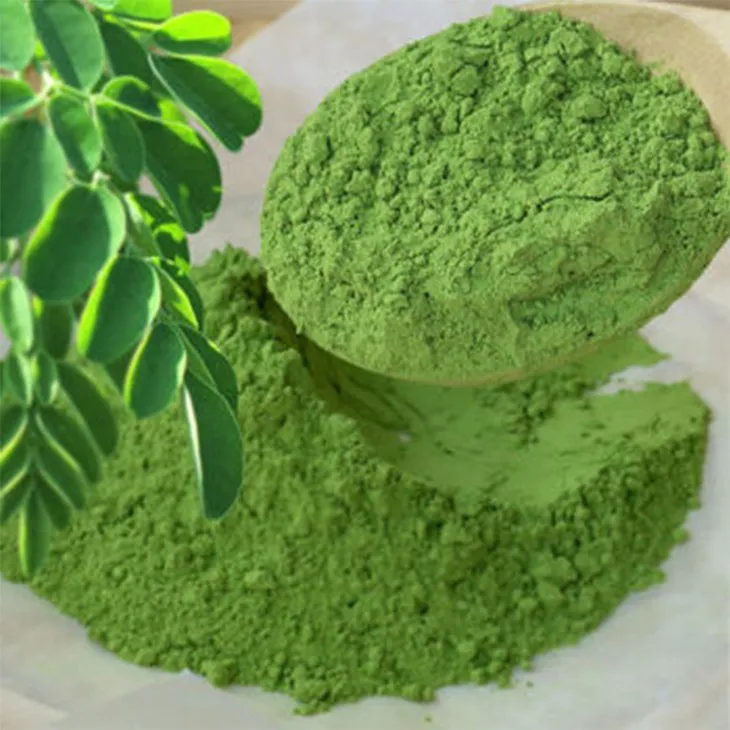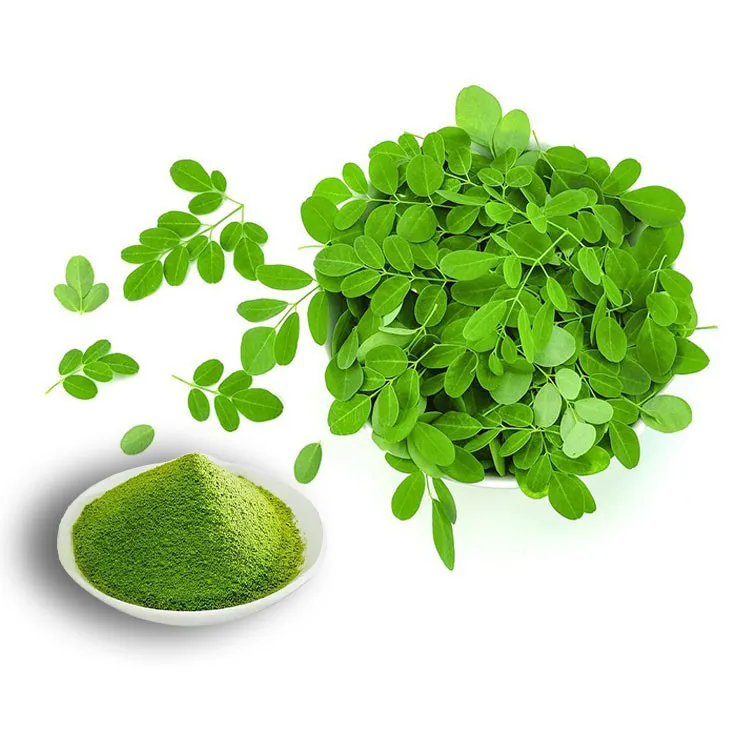- 0086-571-85302990
- sales@greenskybio.com
Moringa powder: Its production methods and the reasons for its popularity.
2024-12-13

1. Introduction
Moringa powder has emerged as a highly sought - after product in recent years. Derived from the Moringa oleifera tree, which is native to parts of Africa and Asia, this powder has gained significant popularity due to its numerous health benefits and versatile uses. In this article, we will explore the production methods of Moringa powder and the various reasons behind its widespread appeal.

2. Production Methods of Moringa powder
2.1 Cultivation
Cultivation of Moringa oleifera is the first step in the production of Moringa powder. This tree is known for its adaptability to different climates and soil conditions. It can tolerate drought and is often grown in tropical and subtropical regions.
- The tree is typically planted from seeds. These seeds are first soaked in water for about 24 hours before sowing to improve germination rates.
- Moringa trees require well - drained soil. They can be grown in a variety of soil types, including sandy and loamy soils.
- Proper spacing is important during cultivation. Trees should be spaced at least 3 - 5 meters apart to allow for proper growth and development.
2.2 Harvesting
Harvesting of Moringa leaves is a crucial stage. The leaves are the main part used for making Moringa powder.
- Leaves can be harvested as early as 8 - 12 weeks after planting, depending on the growth rate. However, for optimal nutritional content, it is often better to wait until the tree is more mature.
- Harvesting should be done carefully to avoid damaging the tree. The leaves are usually hand - picked to ensure that only the healthy and mature leaves are collected.
2.3 Drying
After harvesting, the leaves need to be dried. Drying helps in preserving the nutritional value of the leaves and also reduces moisture content, preventing spoilage.
- There are different drying methods. One common method is sun drying. The leaves are spread out in a thin layer on clean trays or mats and left in the sun for several days. However, this method may take longer and is dependent on weather conditions.
- Another method is using a dehydrator. Dehydrators can dry the leaves more quickly and at a controlled temperature. This helps in maintaining the quality of the leaves as the temperature can be set to prevent over - drying or under - drying.
2.4 Grinding
Once the leaves are dried, they are ground into a fine powder.
- The dried leaves are first crushed into smaller pieces. This can be done using a mortar and pestle or a mechanical crusher.
- After crushing, the pieces are further ground into a powder using a grinder. The powder should be as fine as possible to ensure easy consumption and better absorption of nutrients.
2.5 Packaging
Packaging of Moringa powder is the final step in production.
- The powder is usually packed in air - tight containers. This helps in preventing moisture absorption and oxidation, which can degrade the quality of the powder.
- Labels should clearly indicate the source of the Moringa powder, its nutritional content, and any relevant instructions for use.

3. Reasons for the Popularity of Moringa Powder
3.1 Rich Nutritional Profile
Moringa powder is a nutritional powerhouse. It contains a wide range of essential nutrients, making it highly beneficial for human health.
- Vitamins: It is rich in vitamins such as vitamin A, vitamin C, vitamin E, and various B - vitamins. Vitamin A is important for good vision, while vitamin C is an antioxidant that helps boost the immune system. Vitamin E also has antioxidant properties and is beneficial for skin health.
- Minerals: Moringa powder is a good source of minerals like calcium, potassium, iron, and magnesium. Calcium is essential for strong bones and teeth, potassium helps in maintaining proper heart function, iron is necessary for the formation of red blood cells, and magnesium is involved in many biochemical reactions in the body.
- Protein: It contains a significant amount of protein, which is especially valuable for vegetarians and vegans as an alternative protein source. The protein in Moringa powder is also of high quality, containing all the essential amino acids.
- Antioxidants: Moringa powder is rich in antioxidants such as flavonoids and phenolic compounds. These antioxidants help protect the body against free radicals, which are associated with various diseases, including cancer and heart disease.
3.2 Health Benefits
Due to its rich nutritional content, Moringa powder offers numerous health benefits.
- Boosts Immune System: The vitamins and antioxidants in Moringa powder help strengthen the immune system, making the body more resistant to infections and diseases.
- Improves Digestion: It contains dietary fiber, which aids in digestion and helps prevent constipation. It also promotes the growth of beneficial gut bacteria.
- Lowers Cholesterol: Some studies suggest that Moringa powder may help lower cholesterol levels in the body, reducing the risk of heart disease.
- Regulates Blood Sugar: Moringa powder may have a role in regulating blood sugar levels, which is beneficial for diabetics or those at risk of developing diabetes.
- Enhances Skin Health: The vitamins and antioxidants in the powder can improve skin health, reducing wrinkles and promoting a healthy complexion.
3.3 Versatile Uses
Moringa powder has diverse uses, which contribute to its popularity.
- In Food: It can be added to a variety of foods. For example, it can be mixed into smoothies, soups, and stews to enhance their nutritional value. It can also be used in baking, added to bread or muffin recipes.
- In Beverages: Moringa powder can be used to make tea. Moringa tea is a popular beverage that is both refreshing and nutritious. It can also be added to other beverages like juices or coffee.
- In Cosmetics: Due to its beneficial effects on skin health, Moringa powder is used in some cosmetic products. It can be found in face masks, creams, and lotions.
- For Animal Feed: Moringa powder is also used as an ingredient in animal feed. It provides essential nutrients to animals, improving their growth and health.
3.4 Sustainability
The Moringa oleifera tree is relatively easy to grow, requiring less water and fertilizers compared to some other crops. This makes it a sustainable source for Moringa powder production.
- It can be grown in marginal lands, which helps in making use of land that may not be suitable for other high - input crops.
- The tree has a fast growth rate, allowing for relatively quick harvests and high yields in a short period of time.

4. Conclusion
In conclusion, Moringa powder has become popular due to its unique combination of production methods that ensure a high - quality product and its numerous benefits. Its rich nutritional profile, health benefits, versatile uses, and sustainability all contribute to its growing popularity around the world. As more research is conducted on Moringa powder, it is likely that its uses and benefits will continue to be discovered, further increasing its demand in the future.
FAQ:
What are the main steps in Moringa powder production?
The production of Moringa powder mainly involves several steps. First, Moringa trees are cultivated. They need suitable soil, sunlight and water conditions. Once the Moringa leaves are fully grown, they are harvested. After harvesting, the leaves are carefully washed to remove dirt and impurities. Then, they are dried. Drying can be done through natural methods such as sun - drying or by using drying machines. After drying, the dried leaves are ground into a fine powder, which is the Moringa powder.
What makes Moringa powder so rich in nutrition?
Moringa powder is rich in nutrition because the Moringa tree itself is a nutrient - dense plant. Moringa leaves contain a variety of vitamins such as vitamin A, vitamin C, and various B - vitamins. It also has minerals like calcium, potassium, and iron. Additionally, it contains essential amino acids, proteins, and antioxidants. These components are retained during the production process of Moringa powder, making it a highly nutritious product.
How is Moringa powder used in health and wellness?
Moringa powder can be used in various ways for health and wellness. It can be added to smoothies, providing an extra boost of nutrition. Some people use it in their cooking, for example, adding it to soups or stews. In the field of wellness, it is often used as a dietary supplement. Its high nutrient content can help with improving energy levels, enhancing the immune system, and promoting better digestion.
Why has Moringa powder become so popular in recent years?
There are several reasons for the popularity of Moringa powder. Firstly, as mentioned before, its rich nutritional profile attracts health - conscious consumers. Secondly, with the increasing trend of natural and plant - based products, Moringa powder fits well into this category. It is also relatively easy to incorporate into daily diets. Moreover, research on its health benefits has been spreading, which has further increased its popularity.
Are there any precautions when using Moringa powder?
Although Moringa powder is generally considered safe, there are some precautions. Some people may be allergic to Moringa, so it is important to test a small amount first if you are using it for the first time. Also, excessive consumption may cause some digestive discomfort in some individuals. Pregnant and breastfeeding women should consult a doctor before using Moringa powder as a supplement.
Related literature
- The Nutritional and Medicinal Properties of Moringa oleifera: A Review"
- "Production and Utilization of Moringa - based Products"
- "Moringa oleifera: A Multifunctional Tree with Promising Health Benefits"
- ▶ Hesperidin
- ▶ citrus bioflavonoids
- ▶ plant extract
- ▶ lycopene
- ▶ Diosmin
- ▶ Grape seed extract
- ▶ Sea buckthorn Juice Powder
- ▶ Beetroot powder
- ▶ Hops Extract
- ▶ Artichoke Extract
- ▶ Reishi mushroom extract
- ▶ Astaxanthin
- ▶ Green Tea Extract
- ▶ Curcumin Extract
- ▶ Horse Chestnut Extract
- ▶ Other Problems
- ▶ Boswellia Serrata Extract
- ▶ Resveratrol Extract
- ▶ Marigold Extract
- ▶ Grape Leaf Extract
- ▶ blog3
- ▶ blog4
- ▶ blog5
-
Pure 85% Tomentil Extract.
2024-12-13
-
Echinacea Extract
2024-12-13
-
Polygonum Cuspidatum Extract
2024-12-13
-
Rosemary extract
2024-12-13
-
Kelp Extract Powder
2024-12-13
-
Apricot Powder
2024-12-13
-
Mango flavored powder
2024-12-13
-
Pine bark Extract Powder
2024-12-13
-
Mulberry Extract
2024-12-13
-
Saw Palmetto Extract
2024-12-13
-
Genistein
2024-12-13





















